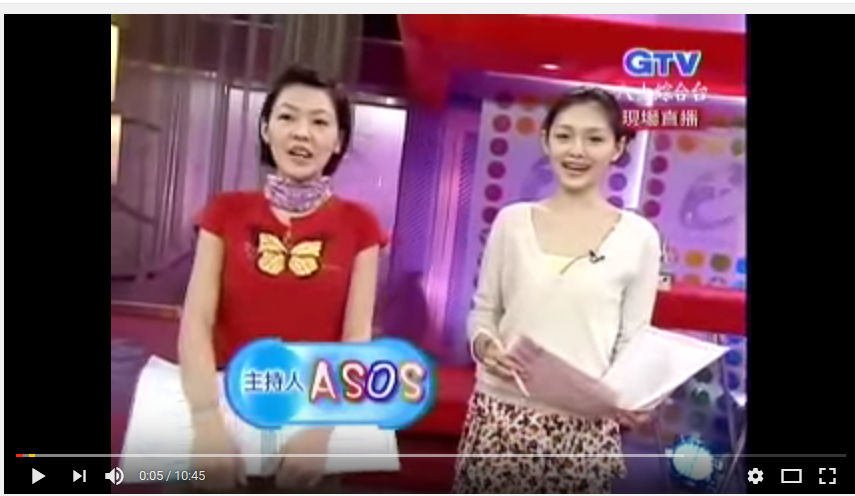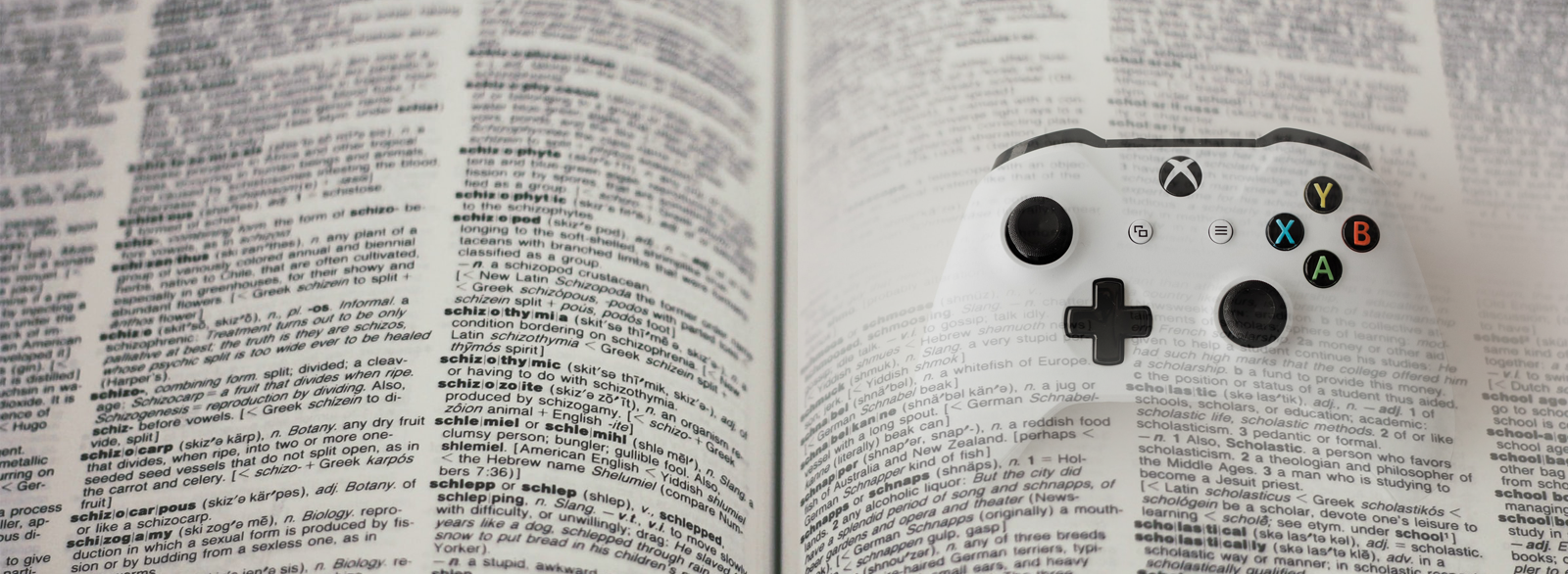This post was originally published on CamLangSci in July 2016. I repost it here (with some reformatting and slight modification) because CamLangSci seems to be down.
The languages we speak are never short of little surprises that constantly remind us of the complexity and flexibility of our mind. For instance, the other day I was rewatching an old episode (originally aired in 2005) of one of my favorite TV shows, 100% Entertainment (娛樂百分百), and heard one of the hostesses Barbie Hsu saying:
(1) ⋯⋯還被媒體把你罵得狗血淋頭。(Mandarin)
… hái bèi méitǐ bǎ nǐ mà de gǒuxiělíntóu.
… also BEI media BA you scold like dog-blood-poured-on-head
“…and you also get harshly criticized by the media.”

The sentence sounds alright, except that it includes both bèi 被 and bǎ 把. What’s wrong with that? Well, in Mandarin Chinese bèi is used in passive sentences to introduce the active subject, and bǎ functions like a transitive/accusative marker on the object. Their uses are illustrated below (PFV = Perfective, ACC = Accusative):
(2) a. 狗狗喫了蘋果。(active)
gǒugou chī-le píngguǒ.
puppy eat-PFV apple
“The puppy ate apple(s).”
b. 蘋果被狗狗喫了。(passive)
píngguǒ bèi gǒugou chī-le.
apple BEI puppy eat-PFV
“The apple(s) was eaten by the puppy.”
c. 狗狗把蘋果喫了。(active, with fronted direct object)
gǒugou bǎ píngguǒ chī-le.
puppy BA apple eat-PFV
“The puppy ate the apple(s).”
(2a) is the neutral way to report this event, where the subject is “the puppy” and the object is “apple(s).” In (2b), “apple(s)”” becomes the syntactic subject, while “the puppy” is introduced by bèi (similar to English by), thus rendering a “passive” sentence. In (2c), the subject is again “the puppy,” but the object “apple(s)” takes bǎ, which explicitly clarifies it as the affected patient of “eat” and entails an agent subject (the eater in this case). That is, when the object is introduced by bǎ, the verb is unambiguously transitive and active.
Dec 6, 2020 edit: At this point one may be tempted to treat bèi and bǎ as prepositions, and they have indeed been treated so by linguists. However, a major point of this post will be that these functional words in Chinese don’t really behave like bona fide prepositions in familiar European languages. Rather, they form a grammatical category that lies somewhere between Verb and Preposition.
So, taking these into consideration, Barbie Hsu’s sentence in (1) is literally something like:
(3) “… and also by the media harshly criticizes you.”
As you can see, it doesn’t work in English. But why is it okay in Chinese? Before I answer this question, let’s look at some similar examples first, which all suggest that the coexistence of bèi and bǎ is not only okay in Mandarin but also productive.
(4) a. 小羊被老虎把頭咬下來了。
xiǎo-yáng bei lǎohǔ bǎ tóu yǎo-xiàlái-le.
little-sheep BEI tiger BA head bite-down-PFV
“The lamb got its head bitten off by the tiger.”
b. 斐雯被老師把漫畫書沒收了。
fēiwén bèi lǎoshī ba mànhuà-shū mòshōu-le.
Feiwen BEI teacher BA comic-book confiscate-PFV
“Feiwen had her comic book confiscated by the teacher.”
c. 臉臉被小刀把手割破了。
liǎnlian bèi xiǎo-dāo bǎ shǒu gē-pò-le.
Lianlian BEI small-knife BA hand cut-broken-PFV
“Lianlian got her hand cut by the small knife.”
This pattern is reminiscent of a construction in Japanese called “suffering passive,” as in (5) (TOP = Topic, PASS = Passive, PST = Past, GEN = Genitive).
(5) a. 私は妹に時計を壊された。(Japanese)
watashi-wa imooto-ni tokee-o kowas-are-ta.
I-TOP younger sister-by watch-ACC break-PASS-PST
“I got my watch broken by my younger sister.”
b. 私は隣の人に足を踏まれた。
watashi-wa tonari-no hito-ni ashi-o hum-are-ta.
I-TOP next-GEN person-by foot-ACC step-PASS-PST
“I got my foot stepped on by the person standing next to me.”
Again we see the coexistence of an oblique (i.e., nonsubject) agent and an accusative patient. Furthermore, in Japanese the passive voice is morphologically marked (-are-). Note that “I” in (5a/b) is not a subject but the discourse topic. Intuitively this also seems to be true for the Chinese sentences in (4), whose English translations more accurately should be:
(6) a. “As for the lamb, BEI the tiger bit off its head.”
b. “As for Feiwen, BEI the teacher confiscated her comic book.”
c. “As for Lianlian, BEI the small knife cut her hand.”
I have let BEI stay as such, because despite the similarity, it is not an exact counterpart of English by (as used in passive constructions). The quasi-passive function word bèi 被 historically derived from a verb meaning “to cover” or “to suffer”—and those literal meanings are still reflected in some words and phrases today, as in (7).
(7) a. 被災/難
bèi-zāi/nàn
“suffer from disasters”
b. 澤被天下/萬世
zé bèi tiān xià / wàn shì
“benefits cover all over the world / many generations”
Apart from the verbal meaning, bèi also has a nominal meaning “cover,” which is well preserved today, as in bèizi ‘quilt’, mián-bèi ‘cotton quilt’, etc.
Of course, in the “passive” construction bèi no longer keeps its original literal meanings. But it is plausible that it still retains some verbal property. In other words, what matters here for bèi is not the literal meaning but the syntactic category. Belonging to the verbal category, bèi can still join the verbal predicate quite freely and does not have to do this as a complement or adjunct (as the English by-phrase does).
In fact, the patient introducing bǎ has a similar status in Chinese. It had also originated as a content word in history—a verb meaning “to hold by hand”—and has developed the usage as a bleached verbal category. Actually the verbal use of bǎ today is even clearer than that of bèi, as in (8).
(8) Some Mandarin words/phrases with bǎ used as a verb:
a. V-O constructions: 把酒 bǎ jiǔ ‘hold the alcohol’, 把門 bǎ mén ‘hold the door’, 把權 bǎ quán ‘hold the power’
b. V-V compounds: 把持 bǎ-chí ‘hold and keep, be in control’, 把守 bǎ-shǒu ‘hold and guard, guard’, 把玩 bǎ-wán ‘hold and play with’
Elements like bèi and bǎ are sometimes called light verbs, since they are light in meaning (due to the bleaching of their original literal meanings) but still belong to the verbal category and perform some verbal functions. Here are some common English expressions with light verbs (boldface): do the cleaning, have a nap, give a talk, take a shower, etc.
We can treat bèi as a light verb that introduces the agent or instrument argument and bǎ as one that introduces the patient argument into the predicate. They can coexist in Chinese simply because they both exist in the language, as in (9a).
(9) a. Chinese:
hái bèi-méitǐ bǎ-nǐ mà de gǒuxiělíntóu.
and AGENT-media PATIENT-you scold harshly
b. English: YouPATIENT also get harshly criticized by the mediaAGENT.
By comparison, since English does not have argument-introducing light verbs like bèi and bǎ, when the verb is inflected in passive, the original object (you) must be licensed otherwise. In this case it becomes the “subject,” and the original subject (the media) subsequently gets licensed in the prepositional by-phrase, as in (9b). In sum, we can say that bèi and by have similar semantic functions but distinct syntactic categories, and that Chinese does not really have the English type passive construction.
Now you may wonder where the subject (or more exactly the topic) is in (10a). Well, it is simply omitted because its information is clear in the context. When you are scolded, the default topic is clearly you! Indeed, (10a) can be recovered as (11), which is exactly what Barbie Hsu means.
(11) 你還被媒體把你罵得狗血淋頭。
nǐTOPIC hái bèi-méitǐ bǎ-nǐ mà de gǒuxiělíntóu.
youTOPIC also AGENT-media PATIENT-you scold harshly
How come Chinese systematically uses topic as a part of the sentence whereas English does not is a whole other story. A relevant fact is that if we omit the topic elements in the Japanese examples in (5), the sentences are also still well-formed, as in (12).
(12) a. 妹に時計を壊された。
Imooto-ni tokee-o kowas-are-ta.
“(My) watch was broken by (my) younger sister.”
b. 隣の人に足を踏まれた。
Tonari-no hito-ni ashi-o hum-are-ta.
“(My) foot got stepped on by the next person.”
Of course, bèi and bǎ are not the only two light verbs in Chinese; there are still many more, such as yòng 用 (introducing an instrument), gěi 給 (a casual alternative of bèi), jiāng 將 (a formal alternative of bǎ), etc. Maybe if you join me to watch TV together, you will notice Barbie Hsu and her sister Dee Hsu frequently use other light verbs as well. Language is our most faithful companion, and we can surely find out many marvelous facts about it if we pay a bit more attention and… study some Syntax!



Leave a comment